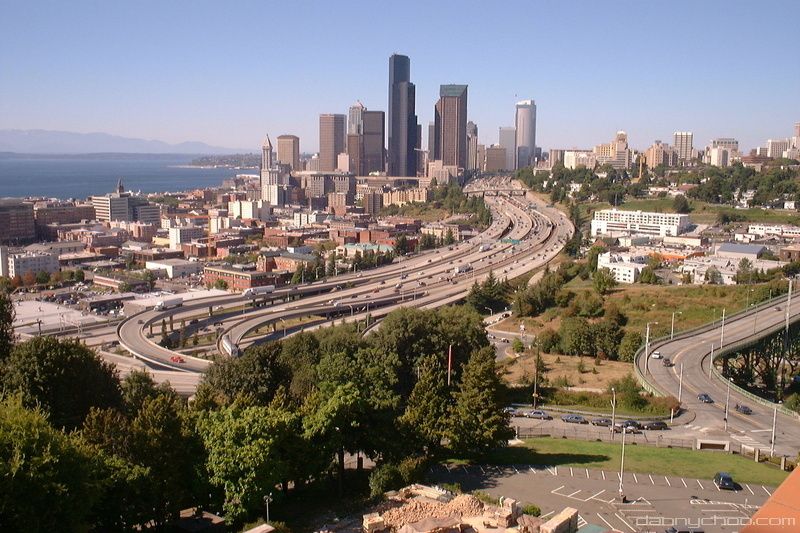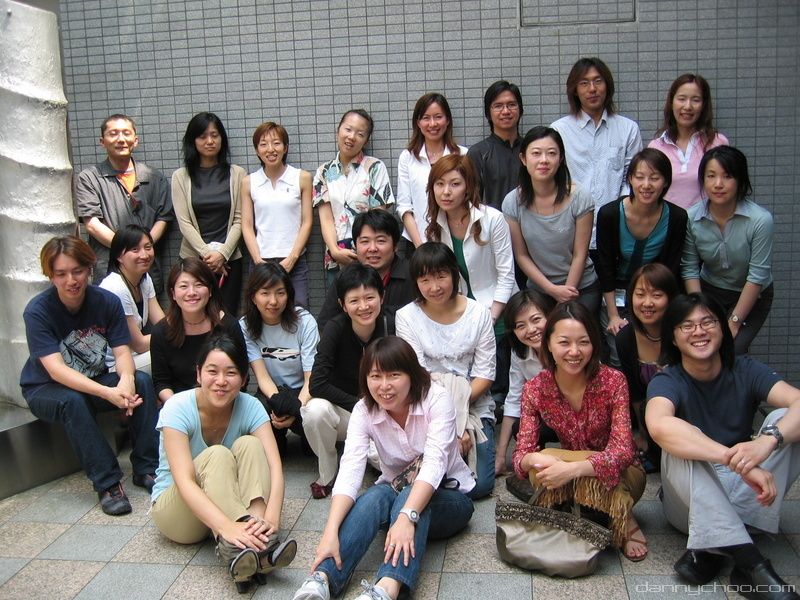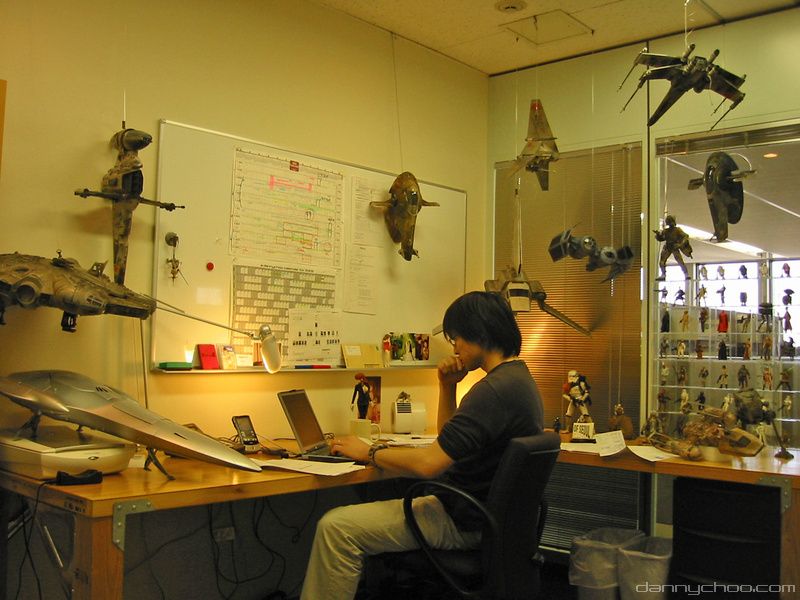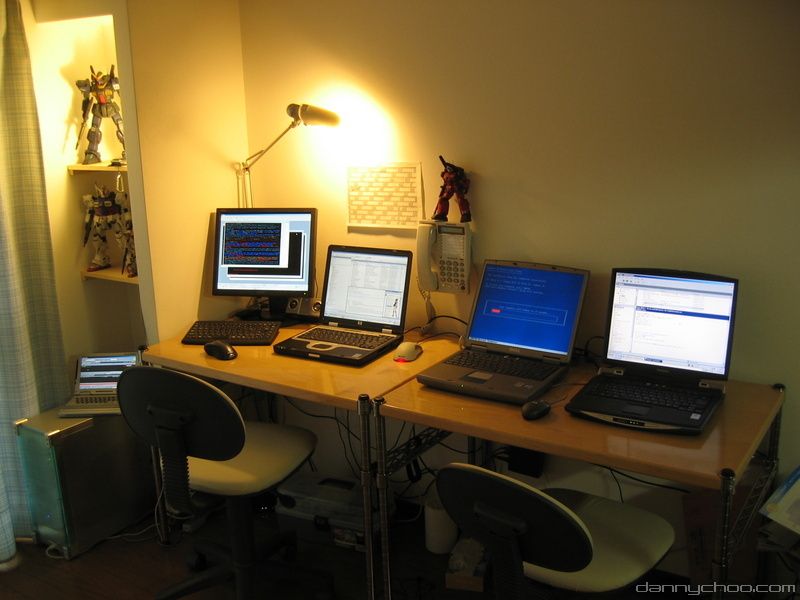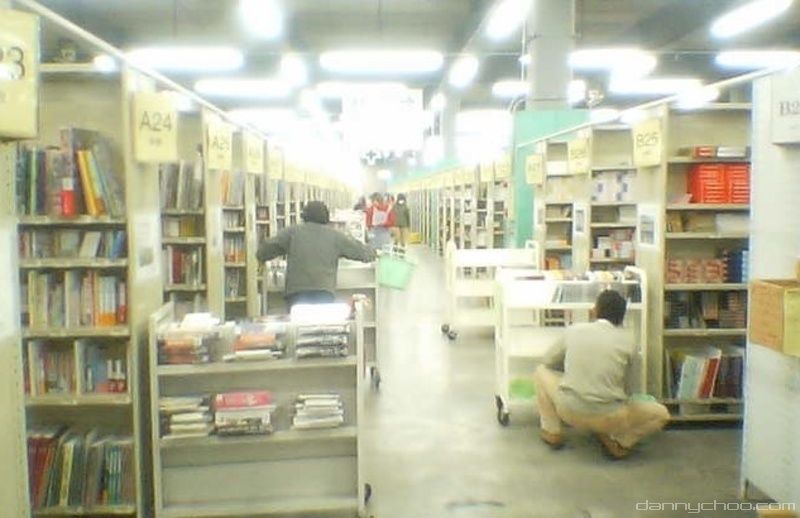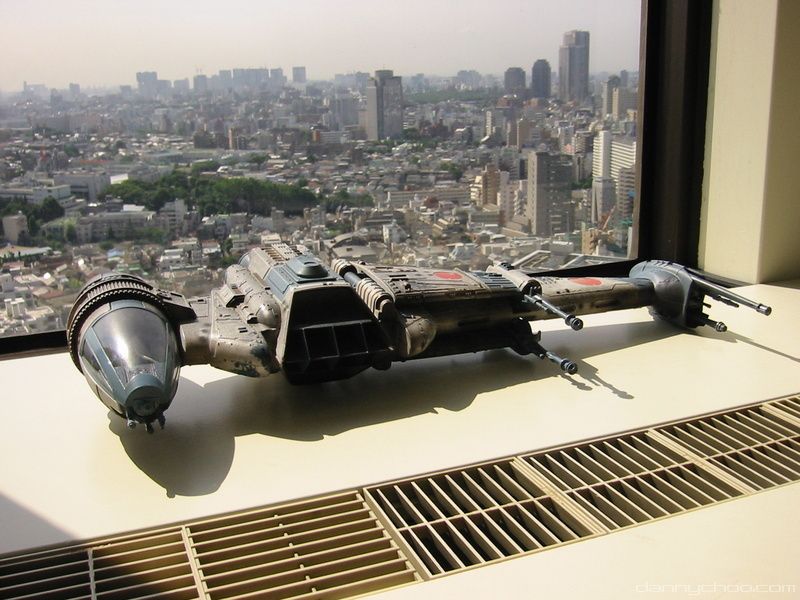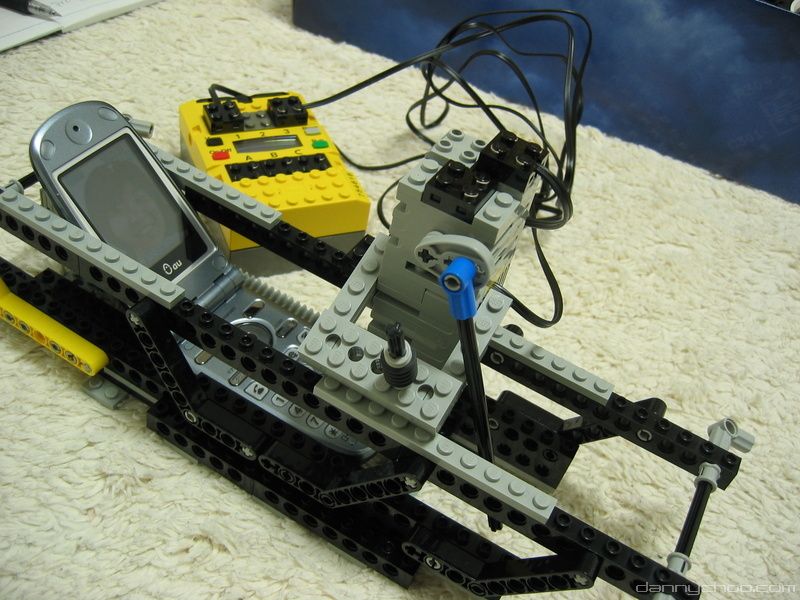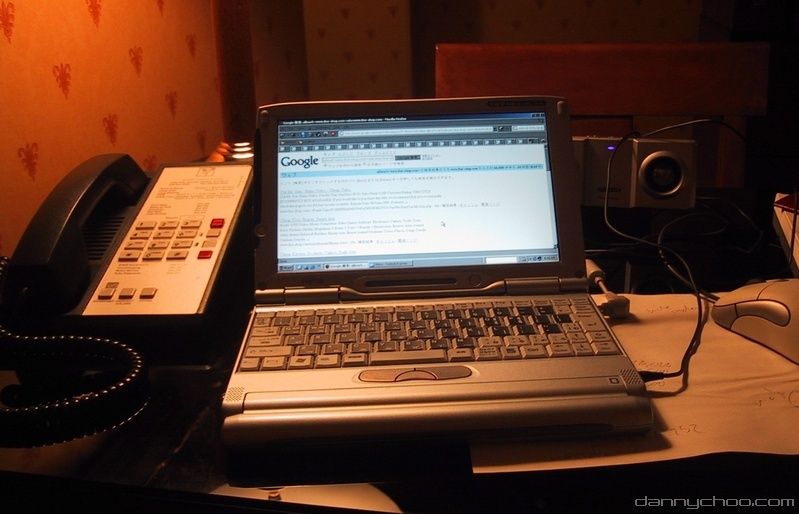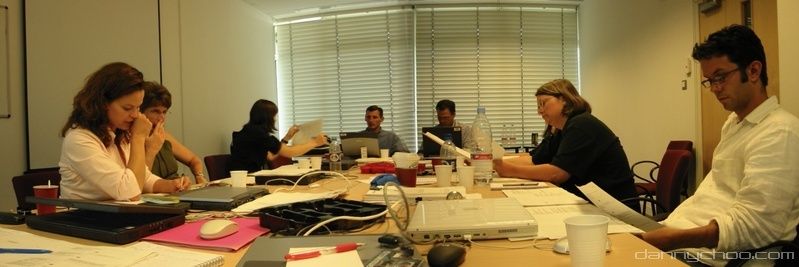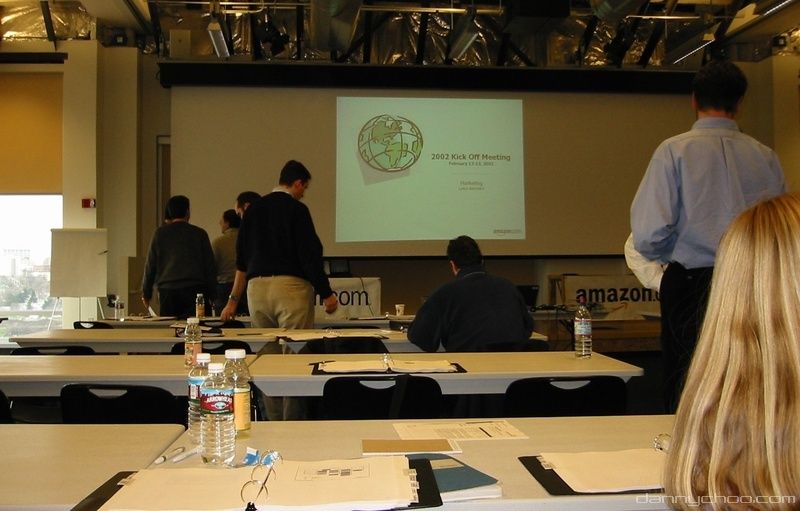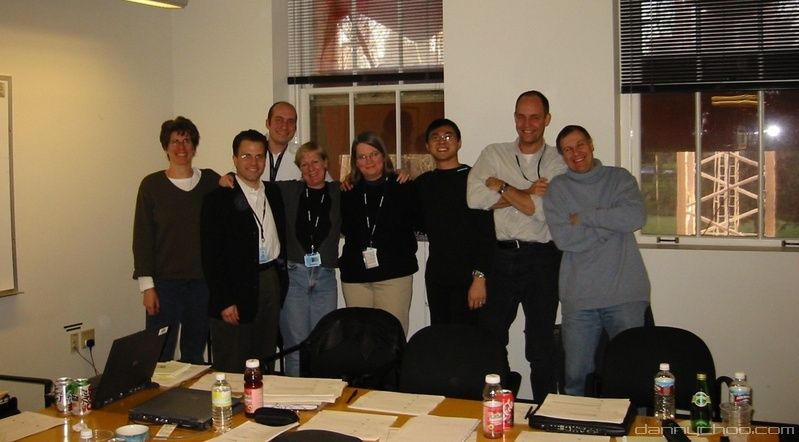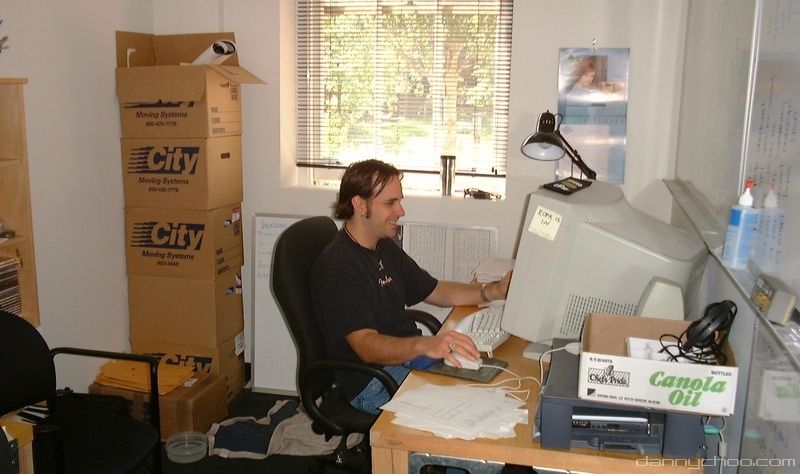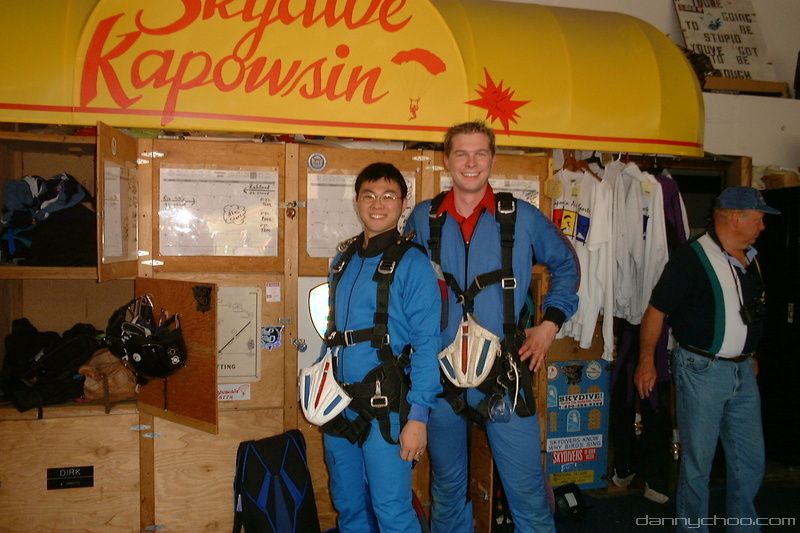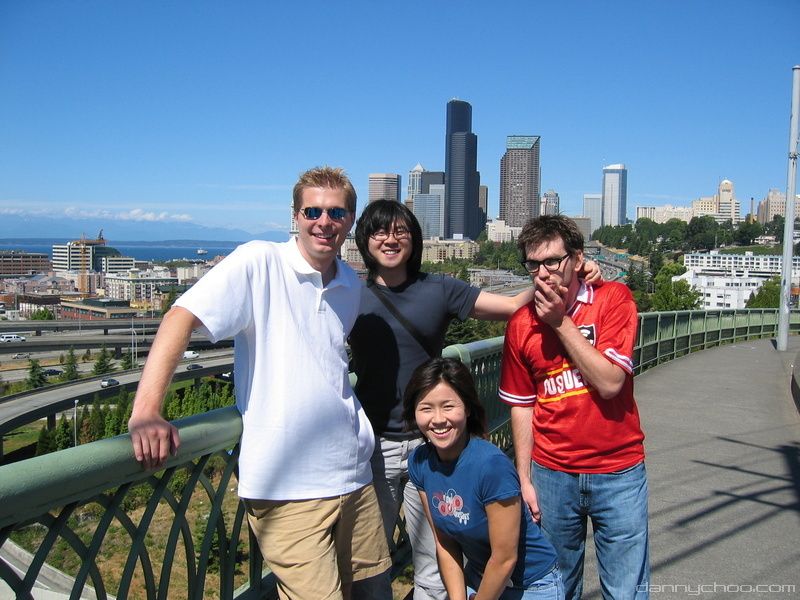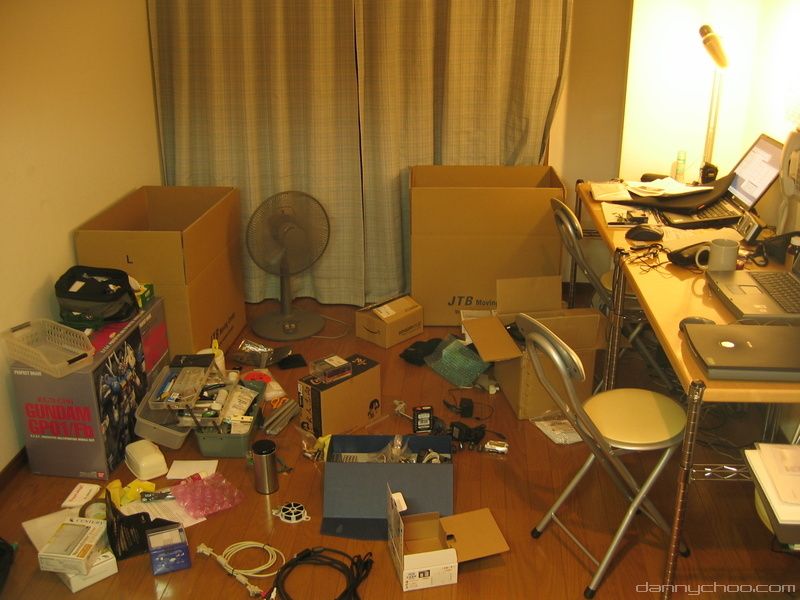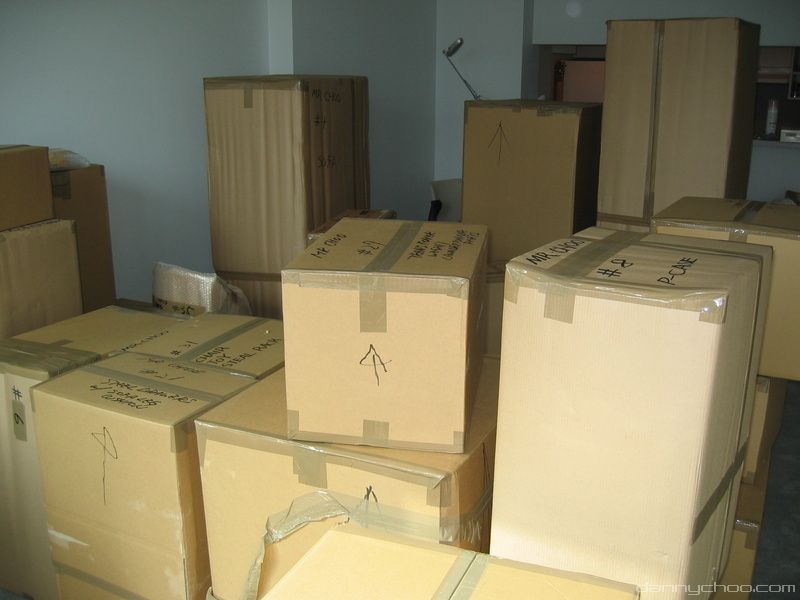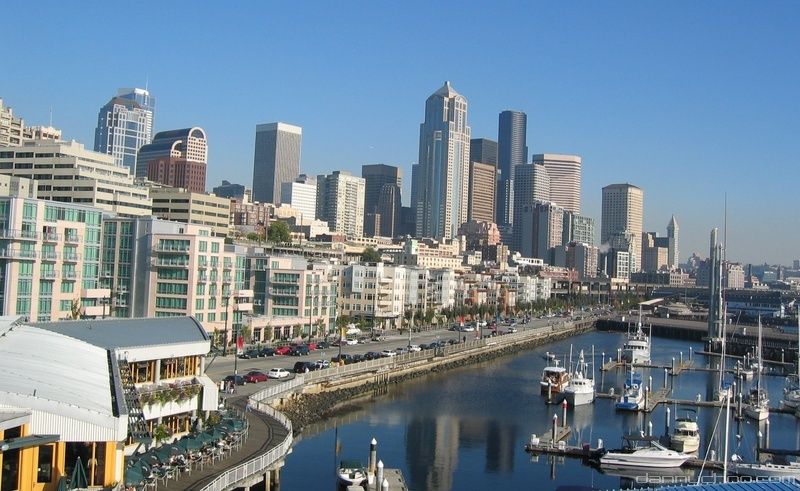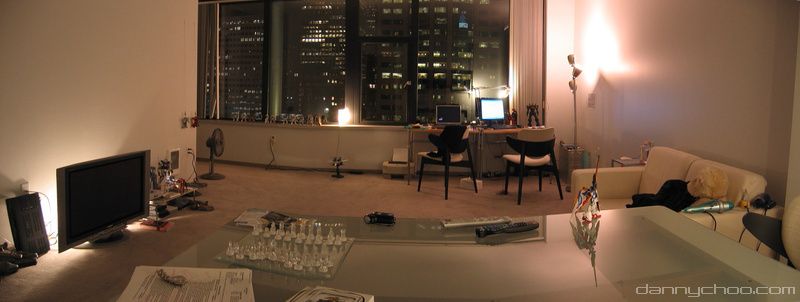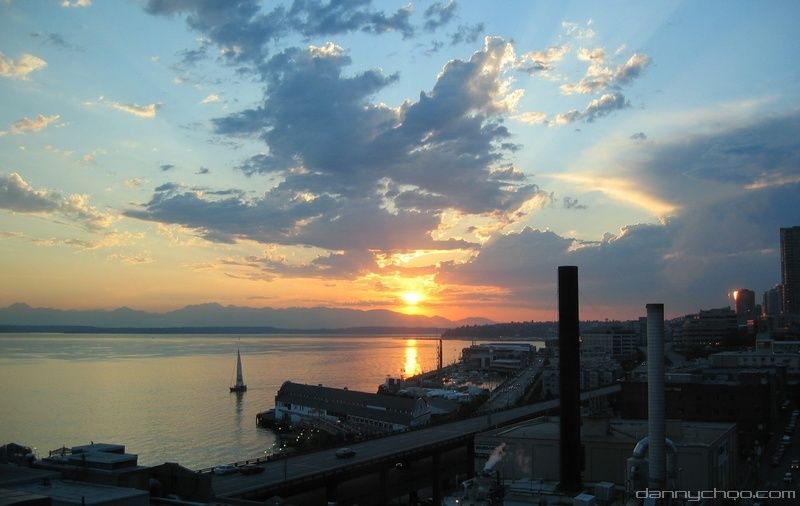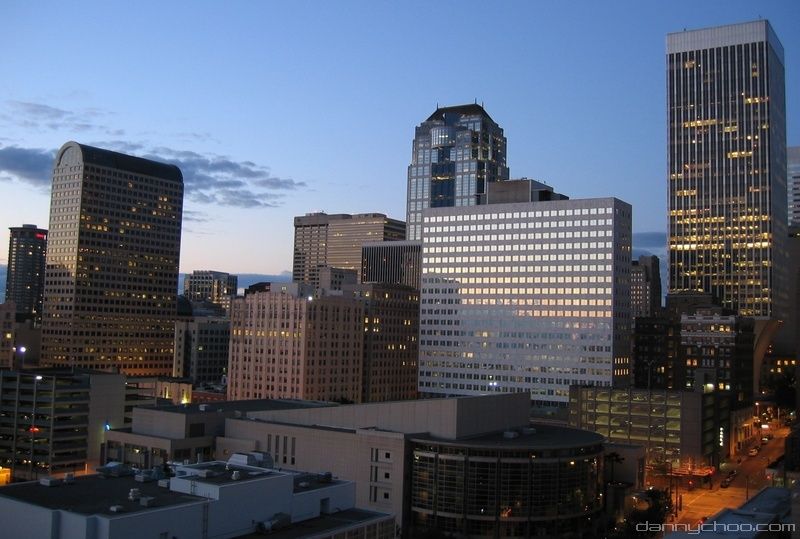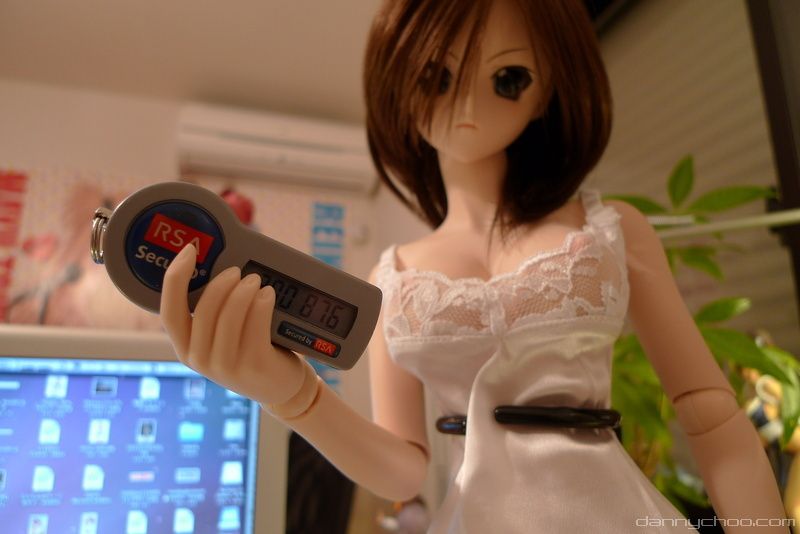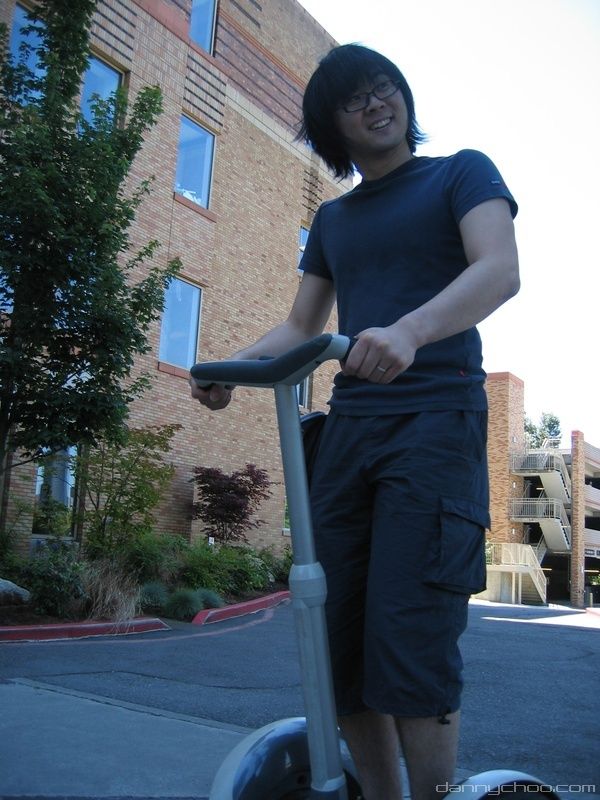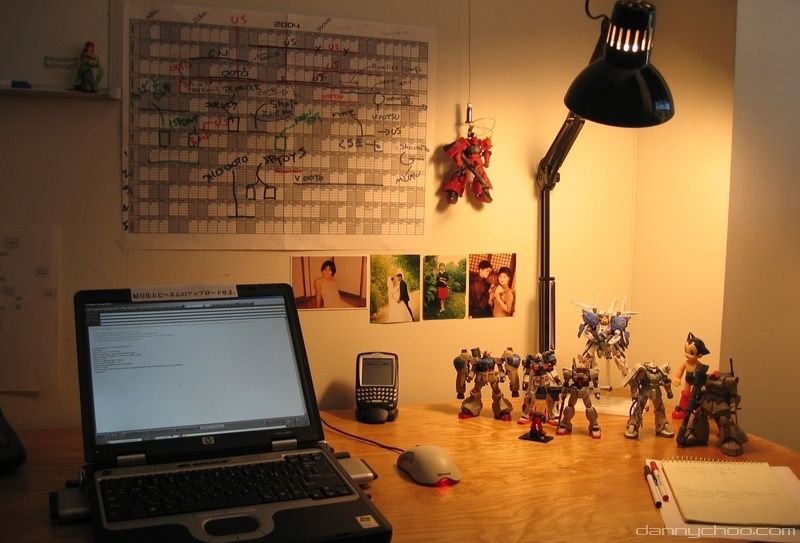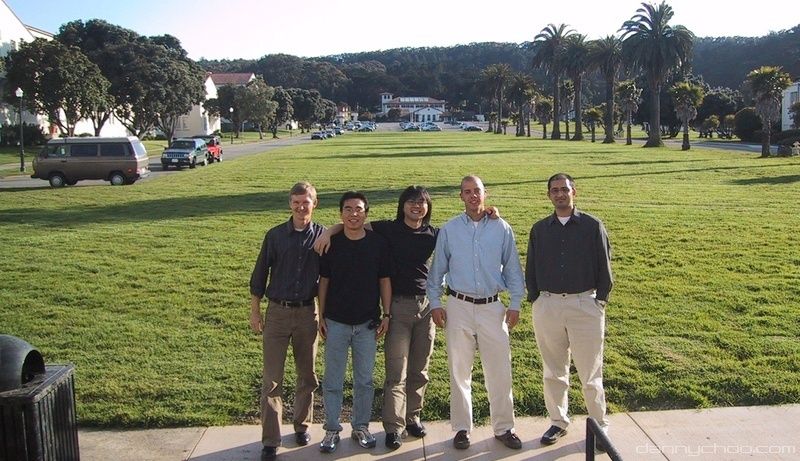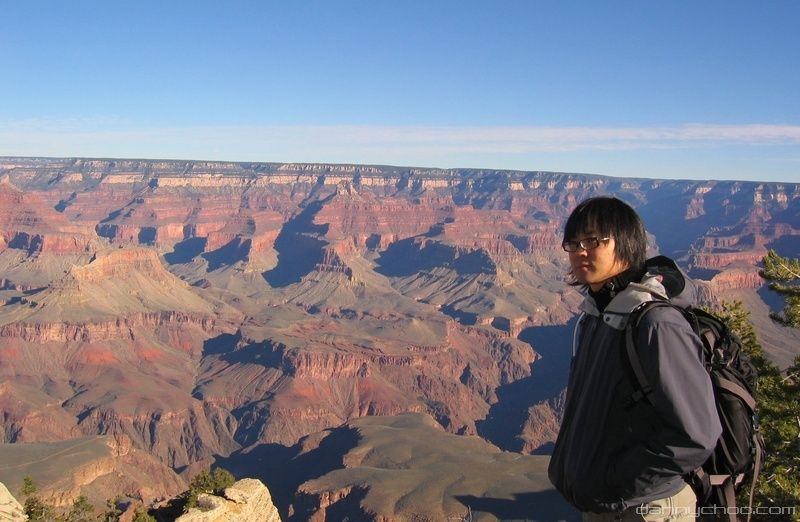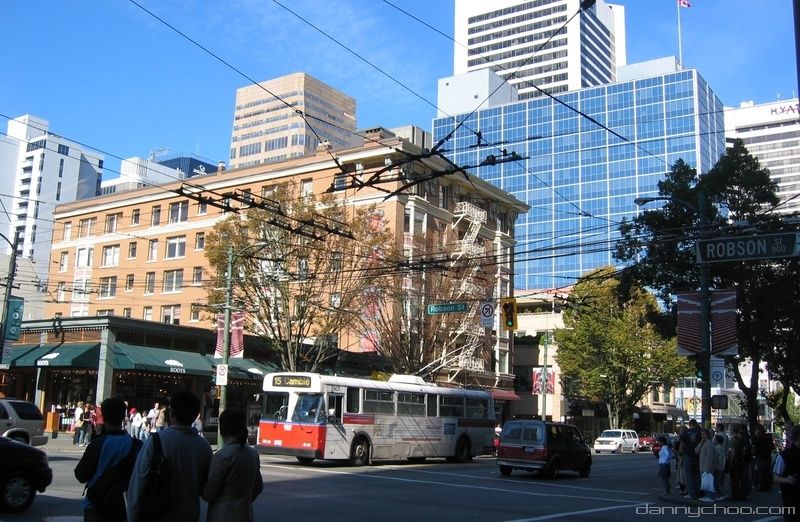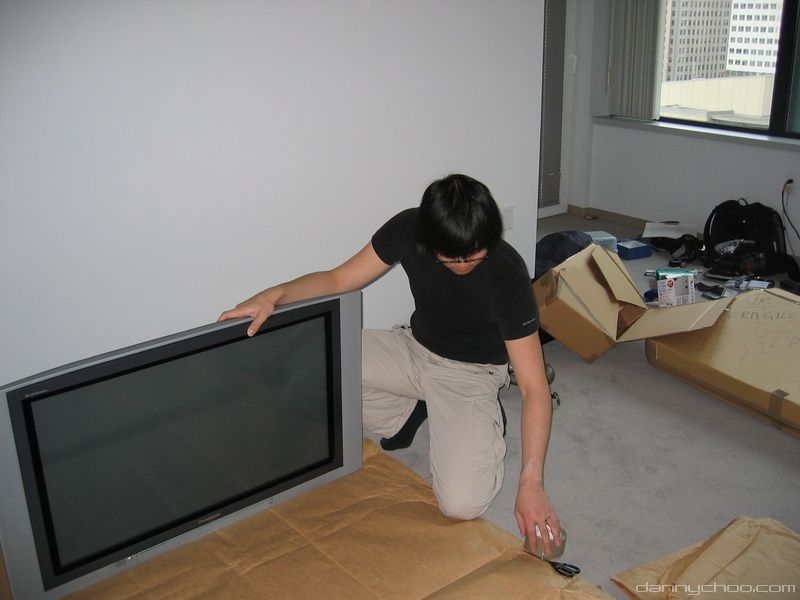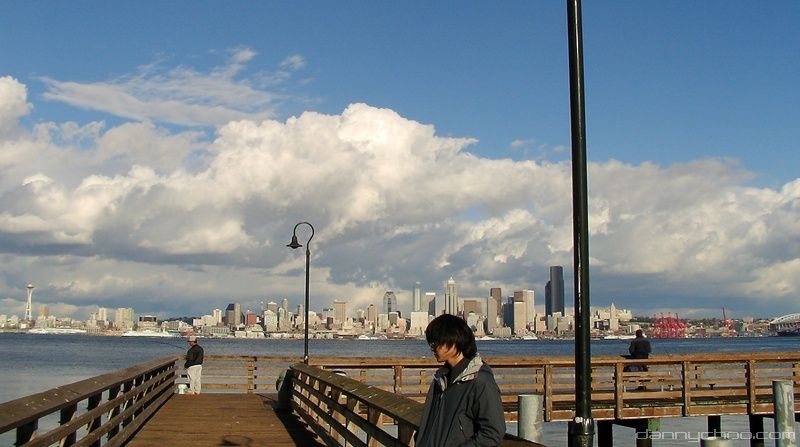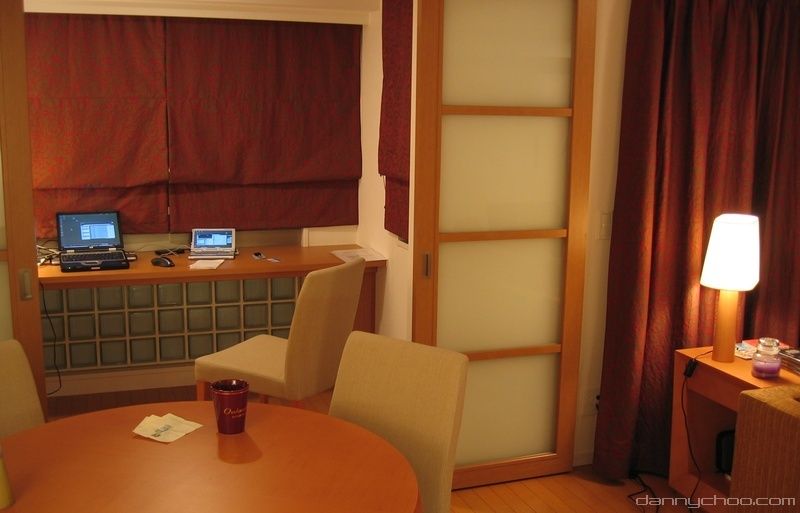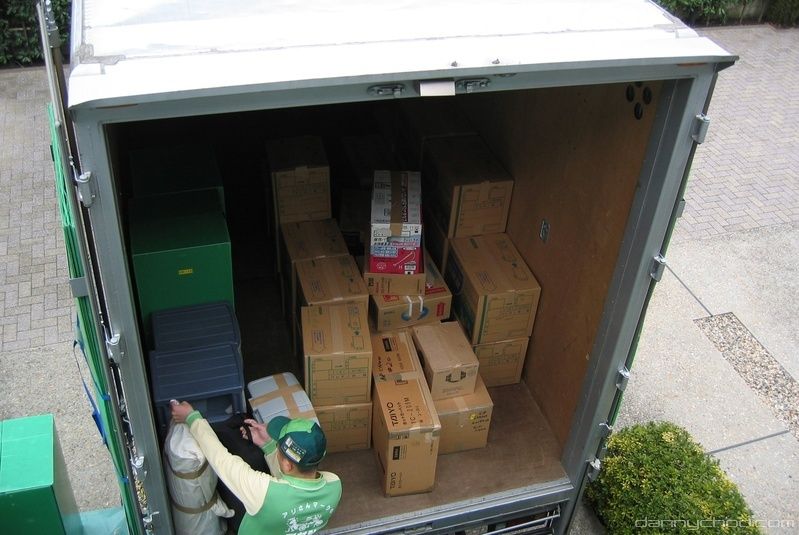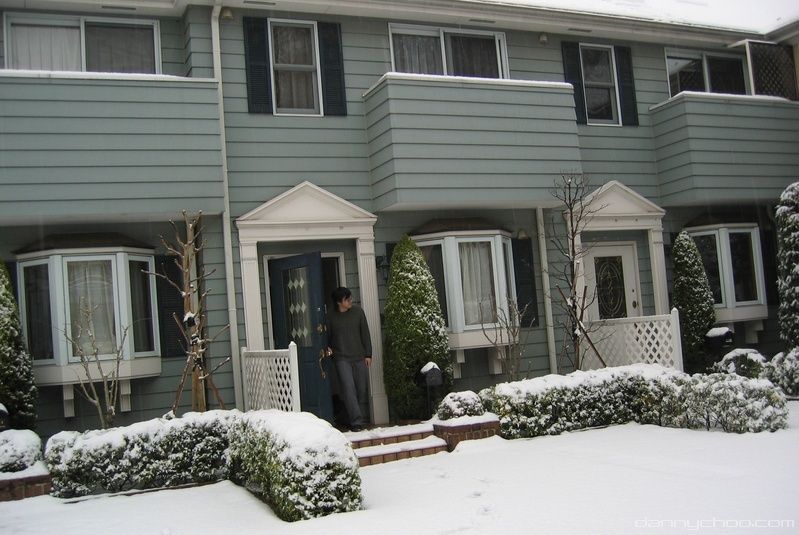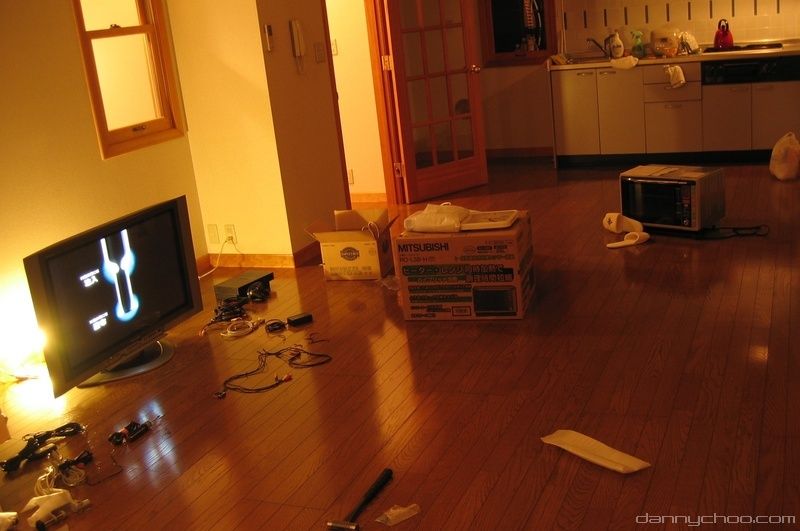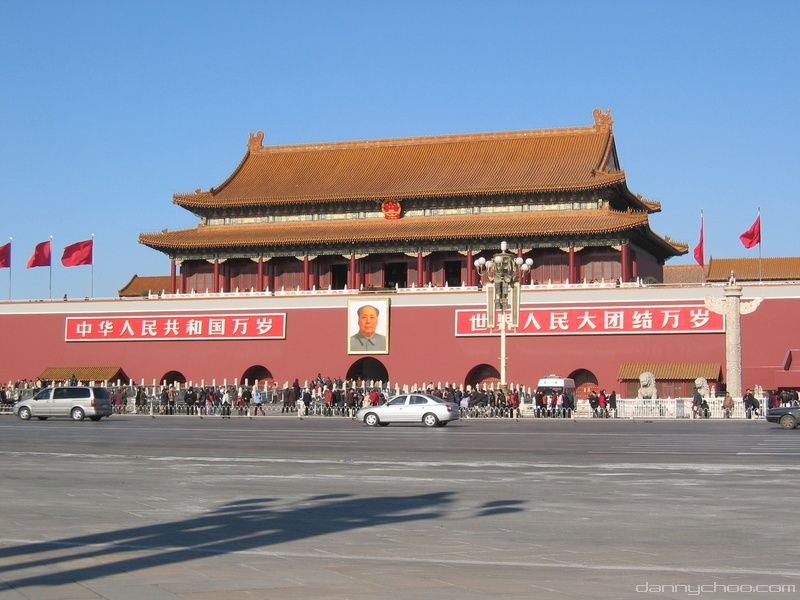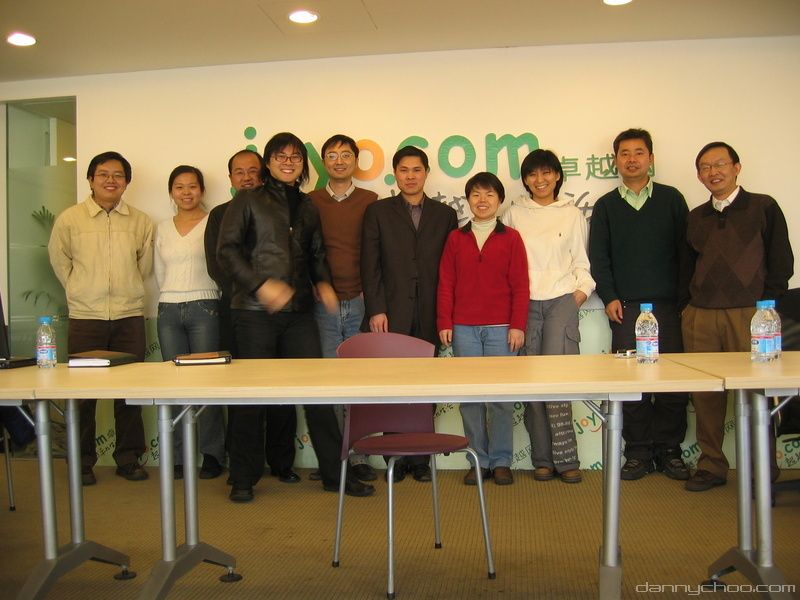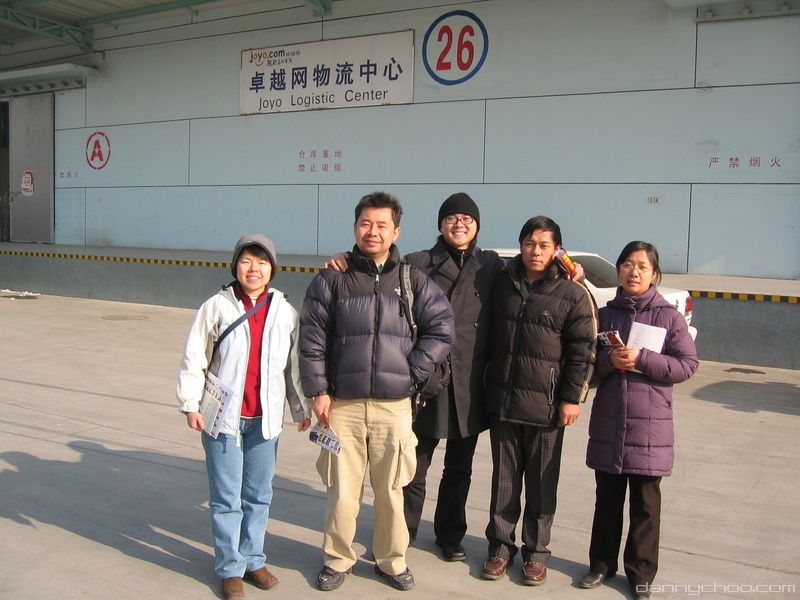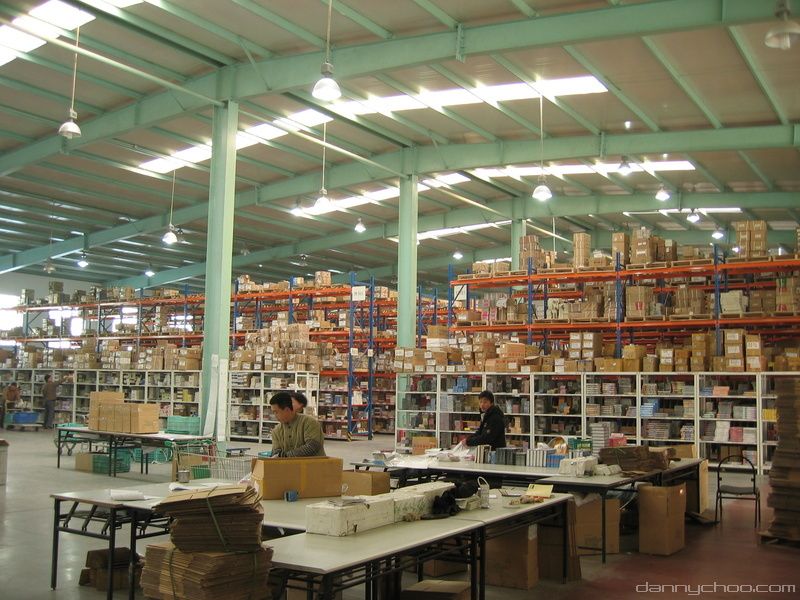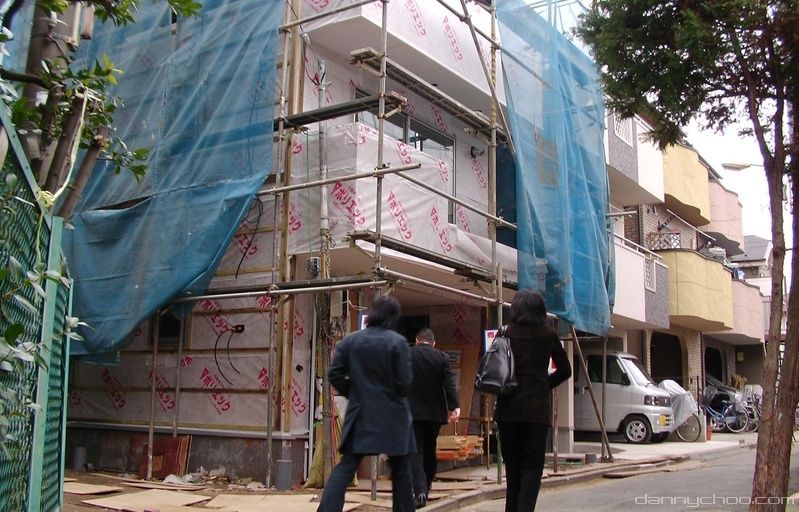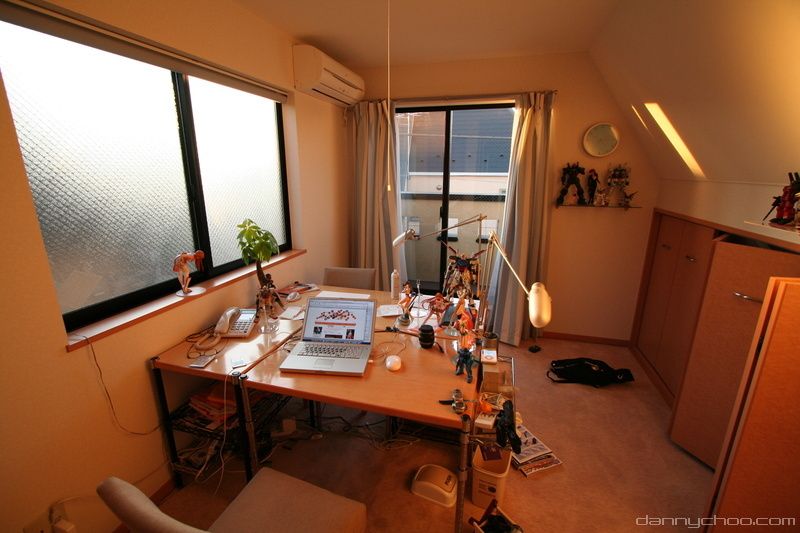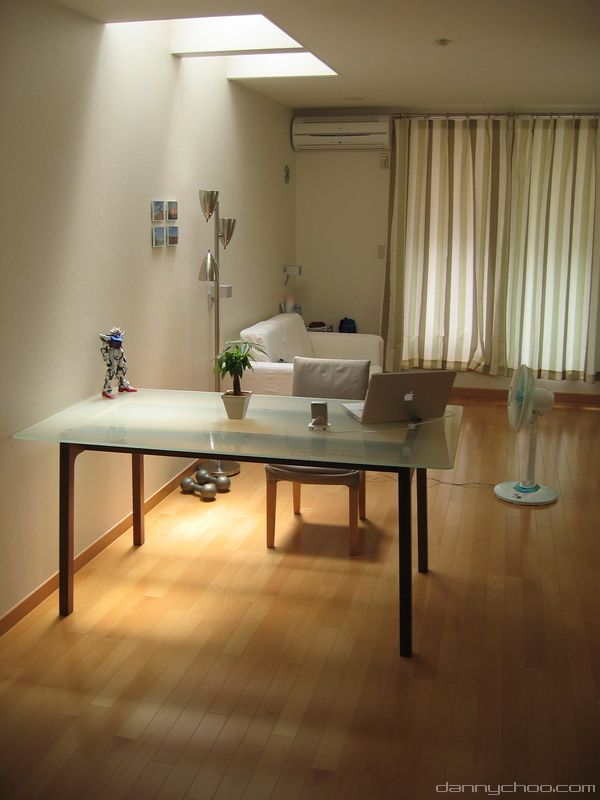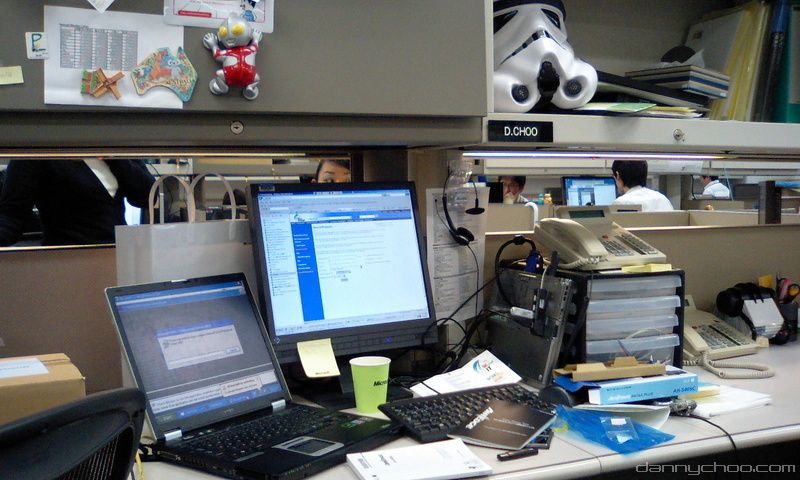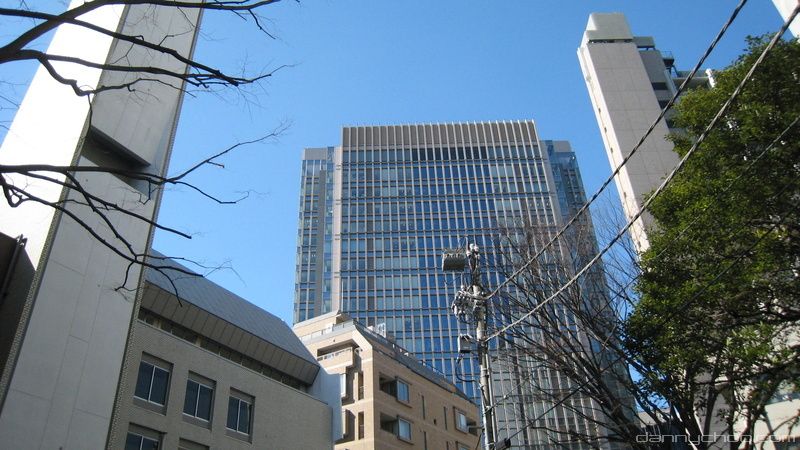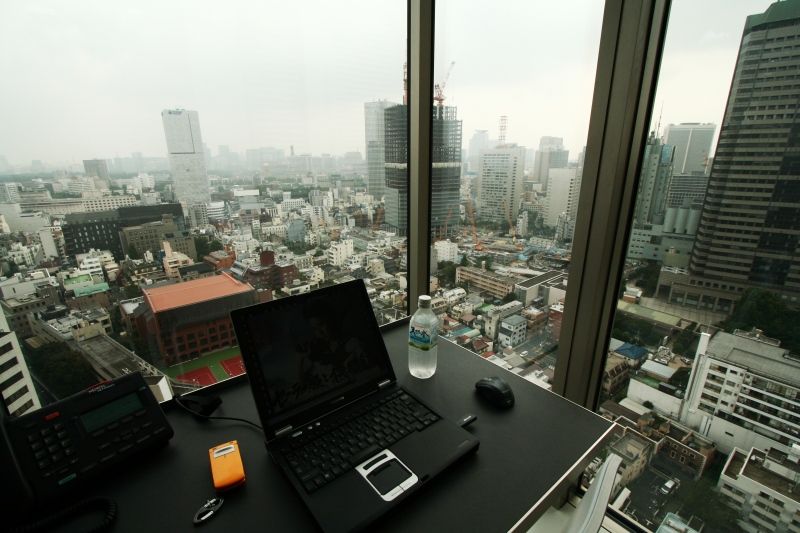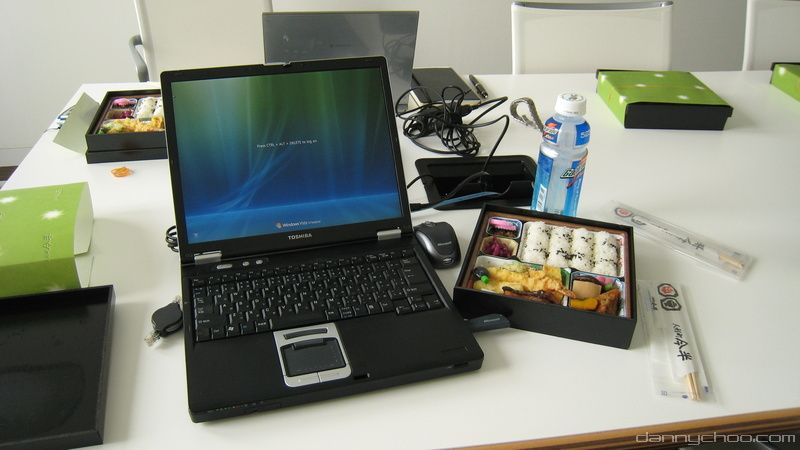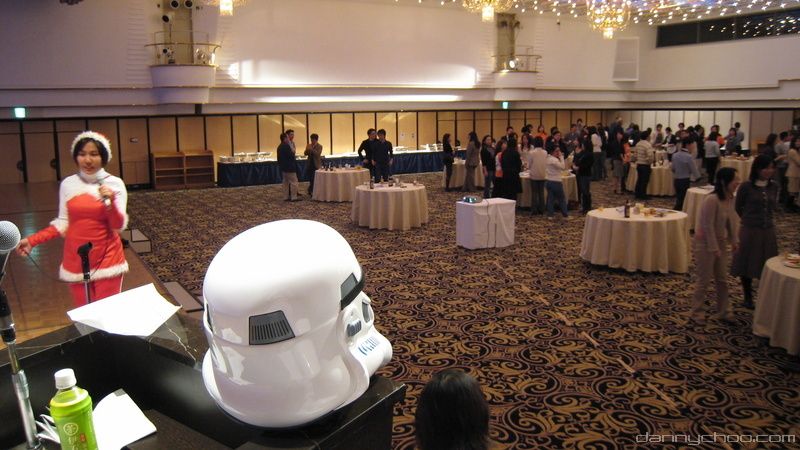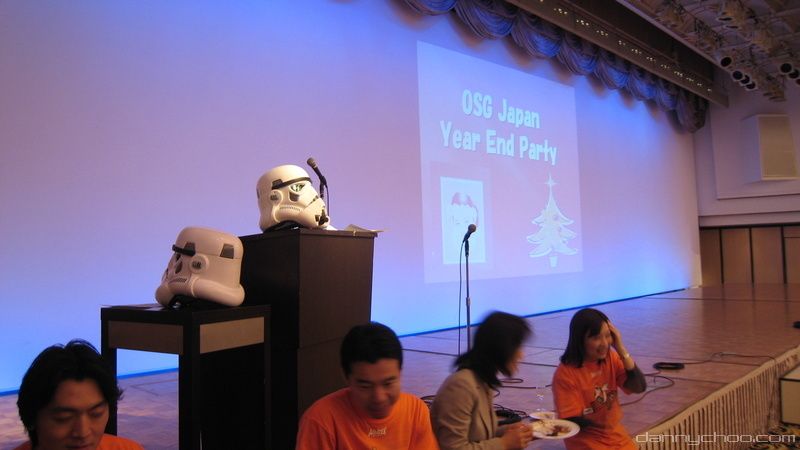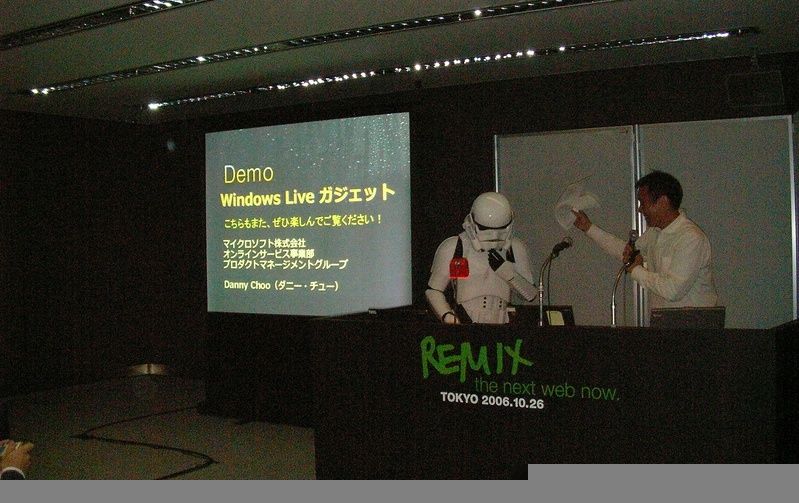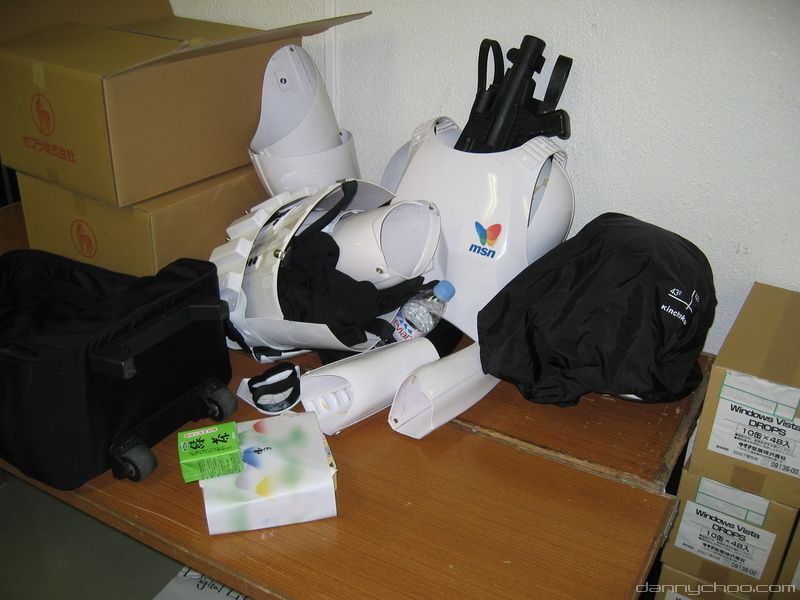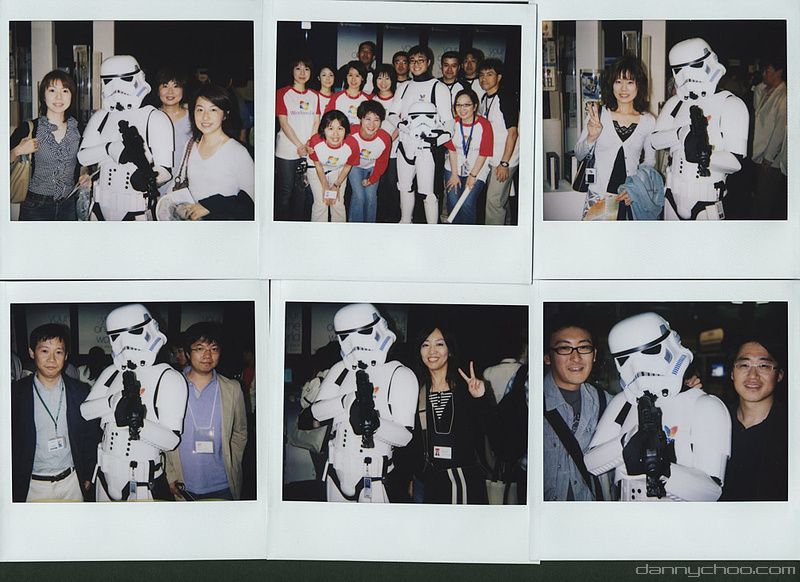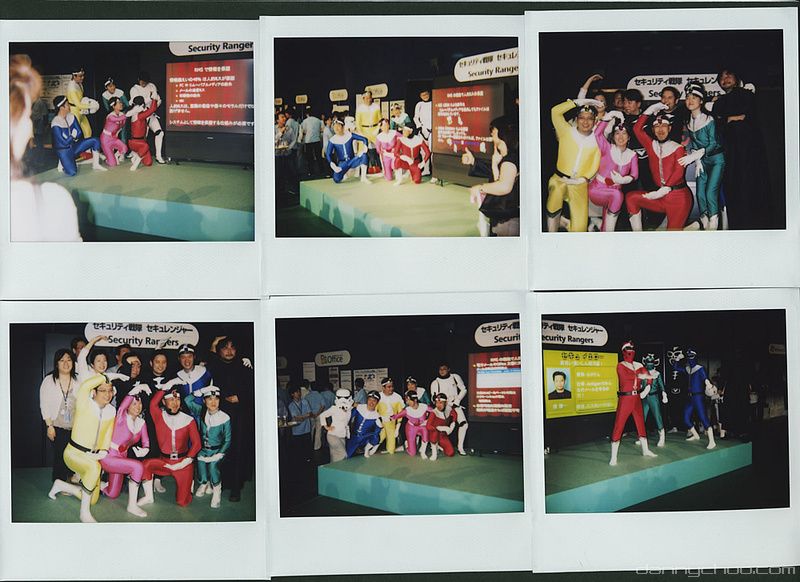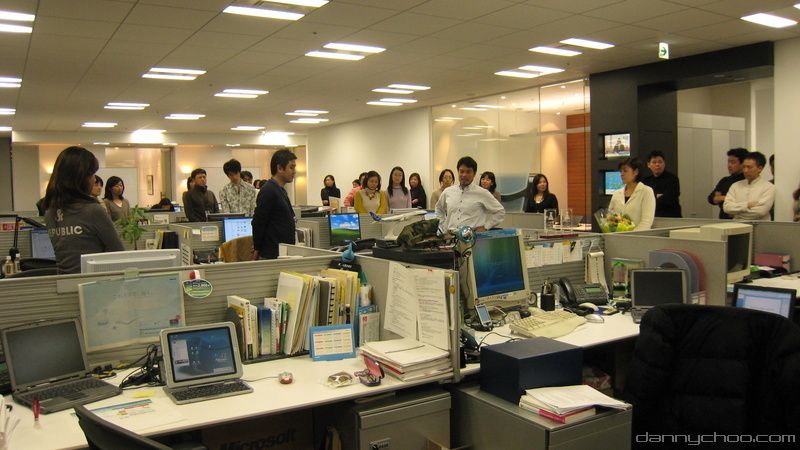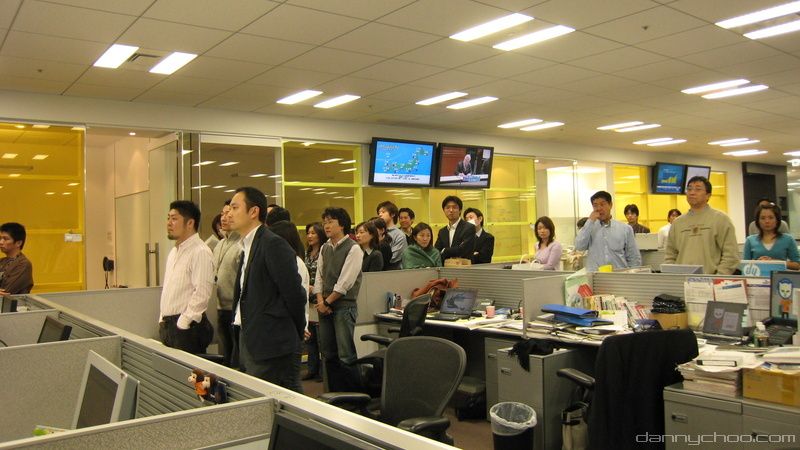Working at Amazon and Microsoft
Been meaning to post this for a while now - a summary of my working career at Amazon as Website manager and Microsoft as CGM Product Manager. This article is a follow on (with a bit o overlap) of the Tokyo 1999 - 2001 article.
The first photo is taken from the canteen at the Pacific Medical Center (PacMed) - the HQ of Amazon.com.
Joined Amazon in 2001 as Website Manager. Was a huge leap in my career - position and monetary wise. Was on the management team together with the directors of finance, IT, supply chain, media, entertainment, books and HR.
Working at Amazon really helped me discover myself and helped me grow. I discovered that I was a people person and good at motivating my staff. While being a people person however, I also needed to think about the company and welfare of other staff meaning that I also had to help or manage out poor performers.
Even the best managers make hiring mistakes and I made a few in the past too. Some people can seem great in interviews but do poorly on the battle field. Amazon has a high hiring bar and expects all new comers to be able to hit the ground running. There are even people designated as "bar raisers" in Amazon who are called in on interview loops.
The challenges of managing a huge team are things like working with subordinates who all have different personalities and backgrounds who interact differently with each other - and then making sure they are motivated and deliver projects on time and to spec.
One of the toughest part of managing a team of about 30 is allocating pay increases from a small budget. We had a performance evaluation twice a year and the pay increases are generally based on the goals achived in the evaluations.
My office at the time filled with Star Wars goodies - left most of it in Seattle.
While I joined Amazon with previous web experience, working at Amazon was a completely different ball game. Working in a small company before, it was about HTML files saved on your local computer which were then FTP'ed to a single server. I remember being completely confused at the beginning by the development and roll out process at Amazon.
At Amazon, all developers had a development environment on their unix machines which were checked in to a single repository. QA is done on a few development servers by QA teams. The files then go though a build process and then pushed out to the hundreds of servers - and this was just for the UI which my team managed.
Then there is the catalog build which involved a process called reconciliation which makes the same product from different vendors the same. The catalog has millions of ASIN's (Amazon Standard Identification Number - the acronym used for products) and took hours to build.
Then there are separate teams to work with including P13n (Personalization), i11n (Internationalization), Search and Browse, Weblab, Userbility and so on. Listed below are some of the stuff I got up to - plucked from profile page which is why it is written in CV lingo. Remember - if you don't tell people your abilities, people are not going to guess. Letting people know of your abilities is crucial in a successful career. If you have a blog, make sure you have a profile page as it will open many doors for you as it has done for me ^o^
Responsibilities in this role included:
- Responsible for the production team of about 30 heads (cant give exact number). The team comprised of Web Development, Quality Assurance, Design, Browse Development, Content Build and Deployment, Cross Site Editorial, Imaging, Program Management and Catalog Operations.
- I was responsible for providing the optimum organizational structure, workloads, direction, hiring, firing, performance evaluation, and determined compensation / career advancement.
- Lead development teams remotely across the globe to coordinate and deploy website features.
- Responsible as a member of the senior management team in Japan to make critical decisions regarding company direction. Also was a member on interview loops for key members of staff including directors.
- As a member of the senior management team, I would participate in top grading, promotion and organizational decisions.
- Travel to each of our locales to meet with the other country website managers to discuss, plan and decide resource allocation, technological constraints / advancements that influence the following quarter's website initiatives.
- Worked with and have good working knowledge of all departments across all locales in Amazon including Vendor Management, Buying, Merchandising, Finance, Legal, Retail, Marketing, Web Services, Public Relations, Human Resources, Supply Chain / Operations, IT.
- Responsible for onboard orientation for new key hires and constant education of website features, technology and processes for the business owners.
- Present technology updates and QA sessions at the company all-hands each quarter.
- Worked closely with Customer Service to understand the nature and cause of customer contact - allowing my team to keep their assigned contacts to a minimum.
- Maintained excellent Service Level Agreements.
- Maintained high morale and optimal working conditions for my team members.
Achievements in this role included:
- Delivered the following major incremental features to the site.
- Introduced procedures such as the Quarterly Planning Process which enabled the business to prioritize the most important feature rollout and projects - allowing my team to execute and deliver with minimal resources whilst minimizing the need to work overtime.
- Executed new and innovative website features which have resulted in incremental revenues of millions of Japanese yen.
- Implemented a vast array of user interface and usability changes to not only improve our customer's online shopping experience but also to increase conversion.
- Delivered Amazon.co.jp's first syndicated store for Virgin Mega Japan.
- Through the introduction of technology, improvement processes and top grading, I kept headcount flat throughout the 3 years as website manager whilst continuing to deliver 100% of the projects and initiatives that were required for Amazon.co.jp to meet each quarter's financial targets.
- Gained excellent working knowledge of Amazons proprietary database, catalog, content / software deployment systems and data processes.
- Also gained excellent working knowledge of our online usability tests - this refers to the tests that we implement when launching incremental features online to a certain percent of users to establish how colors, element / widget positioning, number of clicks involved etc affect customer behavior and conversion.
- Gained excellent working knowledge and concepts of email marketing, content management and online promotional management systems.
While working at Amazon, we stayed at a mansion near Shimo Kitazaka - could get to work in about 30 mins which is considered good for Tokyo. Was one of those Mac haters at the time. Had many Mac users among my staff but couldn't understand what they did on a Mac besides mail and Internets.
Every now and then, we could go through a program called Customer Connect which gives us the opportunity to become closer to the customer. Some of the program involves answering customer calls.
This is a photo of one of the FC's (Fulfillment Centers). Books and products are manually picked from the shelves in a process called "Picking." At the time, most of the FC was rows and rows of shelves but just before I left Amazon it was a ton of conveyor belts and robots - looked like something from the Terminator.
The Japanese Amazon offices are at the Shibuya Cross Tower. Our team was located on one of the higher floors with nice views all round. I enjoyed getting into the office early to take pics of me Star Wars goodies by the window ^^;
One of my personal projects at Amazon which failed gracefully. Wanted to make a device which enabled developers in Seattle to control a mobile phone located in Japan remotely. Got some Lego which came with motors that could be controlled via a computer. The idea was that a developer in Seattle would control this device and see the output through a web cam ^^;
Much of my work at Amazon involved traveling several times a year to the other Amazon offices located in the UK, France, Germany and HQ in Seattle meaning many weeks of hotel life. This is the mini laptop that I used for many years.
Every quarter, the Website Manager from each locale would gather together at either the UK, DE, FR or US office to have the quarterly plannings. Before we had the meetings, we would gather wish lists from the business owners in our locale.
A "business owner" is a term used to refer to folks like supply chain, marketing, PR and so on. They give me their website feature request together with a business case. When I have all requests in, the business owners together with the local finance team and I get together and try to establish which projects are needed to contribute to the financial goals of the company. The projects which yield low gains are usually "killed."
Projects are not all about direct financial gains however. For example, a project may help reduce the amount of customer queries there are. A reduction in a single query = reduced costs.
At the Quarterly Planning Process, all the website managers would discuss the projects required from our business owners and see if there are overlaps with requests from other locales - if there are then we can share resources.
Many of the projects require resources from teams in Seattle so we then need to submit requests to them as they have their own planning processes too.
Dont know what happened - could have been overworking or just something very bad that I ate. Was taken to a hospital after collapsing at home one day. Was living off a drip for a few days which was an interesting experience as I didn't eat at all and didn't feel hungry.
Was thinking that humans in the future would have some sort of socket in their neck where they could just plug in a nutrition pack - saves time on eating ^^;
Was thinking that humans in the future would have some sort of socket in their neck where they could just plug in a nutrition pack - saves time on eating ^^;
Forgot the name of the illness that I had but it was kind of some strange stomach flu.
And then there were meetings which involved all the top folks at Amazon like the annual kick off meetings.
Together with the other Website Managers, my boss Anne krook, Program Manager Patrick O'kelley (who now works for the Xbox I think) and the top design person Ellen Butchard.
Back then all the monitors were CRT's - anybody still use them at work?
One of the first things I wanted to do on my first trip to Seattle - go sky diving. Have always wanted to sky dive and was excited about jumping. The plane made its way up and I was still excited. And then the door opened.
It was a tandem jump but I had to lean out of the plane first. Upon approaching the door and looking down, my body just stopped ^^;
Before I knew It I was falling from the plane and remember looking at the horizon on a gorgeous day with blue skies. The scariest part is after the chute opens as all your senses return to you and you realize that you are still a few thousand feet in the air dangling from just a few strands of string.
Before I knew It I was falling from the plane and remember looking at the horizon on a gorgeous day with blue skies. The scariest part is after the chute opens as all your senses return to you and you realize that you are still a few thousand feet in the air dangling from just a few strands of string.
Loved it though and cant wait to go again. But expensive for a jump in Tokyo - a place in Saitama does them for 30000 yen a jump.
With ninja coder team members walking down from PacMed to the International District for lunch.
And then in July 2004, we packed *everything* up and moved to Seattle. I was asked if I wanted to work in Seattle and while I have always loved Japan, my wife and I knew that we had to move to the US - we didn't know why but did know that it was a piece of the jigsaw puzzle of life that we needed to collect.
Arrival in Seattle. We were given air and sea cargo - air cargo for the important stuff like Gundams.
This is where Amazon put us up - one of the tall buildings in the middle the photo is Harbor Steps - our home for the next 5 months.
And this is what our apartment looked like on the inside. Could not get over the huge amount of space we had compared to what we got used to living in while in Japan.
This was our sea view. Gorgeous sunsets over the emerald city.
And this was our city view.
Working remotely at Amazon was a pain. We used to carry around something which resembled a calculator. When logging into the Amazon network, we would be given a challenge which one needs to key into the calculator thing. The calculator would then produce a response which had to be keyed in to the terminal window - all had to be done within a few seconds!
These days Amazon uses one of these devices - wont go into detail but its a lot less painful to log into the network. BTW - this is not mine - a former colleague from Amazon came over to stay and I just took a peek ^^;
Working at Amazon was indeed fun - more fun in the US office though. There was a Segway for some of the employees to play around with. Still want one but its illegal to use then on the roads in Japan. One can buy a Segway in Japan but the law still says that you can only use it on private grounds.
Any lucky reader have a Segway?
Any lucky reader have a Segway?
And we would occasionally play dodgeball too which was most fun.
View of PacMed by night.
And this was my desk in Seattle. The HP laptop was my work machine but I ended using it for private stuff too - browsing and what have you ^^;
The Blackberry was the only device approved to poll Amazon internal mail at the time.
An example of the lovely brekkie available at the Amazon canteen. Love American breakfasts.
This photo was taken with the Alexa team at the Alexa data centers.
Flew over to Las Vegas, grabbed a car and drove over to Monument Valley - one of the most amazing sights we've ever seen.
One has the option of leaving their car at the gates and walking in or taking the car into the grounds - take the car as the grounds are huge. You can stop and get out anywhere anytime.
Just gorgeous. If you are traveling to Las Vegas, do take time out to travel to Monument Valley.
And then the place that leaves you in awe - the Grand Canyon. The marvel of this natural wonder cannot be described by words, photo or videos alone - one must be there and experience it to truly appreciate how wonderful the place is.
Vancouver is just a few hours drive up from Seattle. Spent a few days there to experience Canada. The food is lovely and the girls over there are rather pretty desu ^^;
And then after 5 months, we packed up to move back to Japan. Working in the US was a great experience for the both of us. We met a load of folk and the time here further broadened our minds.
But it wasn't until I left Japan that I discovered how much I love the land of the rising sun. I remember watching the Japanese channel all the time in Seattle and watched Lost in Translation over and over again.
So what does my wife think about all this moving round from the UK to Japan to Seattle and back to Japan? Well its a question that many ask her and she always answers the same - it doesn't matter where we live as long as we are together. We've been together for 13 years now.
My wife has lived in more countries than I now. China, Japan, UK and the US.
This snap taken just before we left Seattle. We probably would have made more of the time if we knew that we were only going to be there for half a year. Time flew by and before we knew it everything just fell into place.
Amazon had just acquired a Chinese website called Joyo.com and I was to manage Website and Software development.
Senior VP Diego Piacentini who reported directly to the CEO of Amazon Jeff Bezos really looked after me well. Am grateful for what he done to help my career at Amazon.
A quick trip to Canon Beach in Oregon for a couple of days before we leave.
And then its back in the land of the rising sun. Was November 2004. We enjoyed our time in the US but was over the moon to be back. Amazon put us up in corporate housing again for a few weeks at Oakwood in Azabu Jyuban.
We found a place in Tamagawa before our stuff arrived back in Japan.
This is what it looked like on the outside - a terrace house. We chose a terrace house this time round because of the terrible noise that we've experienced in the past from neighbors above and below - we get both floors this time.
But! As with many places for rent in Japan, the walls were made of paper and you could hear everything through the walls.
But! As with many places for rent in Japan, the walls were made of paper and you could hear everything through the walls.
Moving into the second floor. Ended up staying here for a few weeks before deciding to buy a house.
With the newly acquired Joyo.com, most of the directors were actually based in Japan. The IT manager of Japan managed IT in China, Supply Chain director managed the SC in China and so on.
Some team members at the Joyo offices.
Loved visiting the China offices because they had this! Not sure if the Pin Yin is correct but Poluo Pau Bing - a kind of pineapple pancake.
At the Joyo.com Fulfillment Center.
Inside the Joyo.com FC. Cant see any secret stuff so I hope Amazon HR does not contact me and ask me to remove it ^^;
If this photo disappears over the next few days then you know that I got the contact.
If this photo disappears over the next few days then you know that I got the contact.
Just before I left Amazon, we spent a lot of time with the house buying process which you can read in the Tokyo Property Purchase article.
This is what my office looked like at the time.
And this is what it still looks like on the second floor. Pretty pleased that the house was paid for with affiliate earnings ^o^/
And then I made my way over to Microsoft where I served as a CGM (Consumer Generated Manager) Product Manager. My first post was at the Shinjuku offices in Times Square. The MSN/Web team occupied a single floor which was becoming packed. New comers (like myself) had to sit in between desks until we moved offices ^^;
And then we moved to Akasaka - the building in the middle which overlooked a girls school...
...and thats not the reason why I ended up with a desk by the window ^^;
My work involved the feature planning, service evaluation, development, implementation and execution of various online services. Products that I mainly worked on were Spaces and Favorites.
There are a few things that I can probably publicly talk about Microsoft without getting in trouble.
For a start, it was interesting to see how folks at MS were more outgoing than folks at Amazon. Amazonians rarely go out to networking events to mingle but folks at Microsoft done it all the time.
MS folks seemed more web savvy in terms of understanding the trends what was going on in the web - most of the folk at Amazon Japan were hired from a retail background and not necessarily a web background.
MS generally treat their employees very well - once you get a job at Microsoft, you can probably stay there for life. I didn't hear of Microsoft laying people off. But there is a bad side to this - poor performers are sent to work with other groups and end up affecting the productivity of that group.
The other bad thing about this is that many people get in the comfort zone easily and try not to do anything that will rock the boat. There were only a handful of people who wanted to do something radical and put forward great ideas.
Microsoft is a great software company but tries to use processes for developing software to develop web applications which are a different thing.
Microsoft is unfortunately a follower and not an innovator. They would usually wait until a competitor is doing something before taking action.
Great examples are Firefox - if FF didn't come along, everybody would still be using IE6.
If Googles online services didn't come along, Windows Live probably would not have happened.
No Playstation, No Xbox etc etc.
Great examples are Firefox - if FF didn't come along, everybody would still be using IE6.
If Googles online services didn't come along, Windows Live probably would not have happened.
No Playstation, No Xbox etc etc.
There was an internal process where you had to submit information about what the competitor is doing before the project was approved - meaning that it was not possible to submit something that was not already being done by others.
The worst thing about Microsoft was their infatuation with Google. They even had a job position called "Beat Google" which you can read about at GizzBuzz. It wasn't about innovation - it was all about waiting for the competition to do something and then copy them - and then try to beat them at it.
Microsoft employees are *much* better paid than Amazonians. My observations were that a product manager at Amazon may have earned about 5000000 yen but a person of same responsibility at Microsoft earns 10000000 yen - double desu!
Amazon and Microsoft were similar in the way that HQ is located in Seattle and that many of the Japanese projects are just localization features of stuff from the US - happens at Google too (so I hear).
This photo taken at an end of year party. Despite the "follower and not innovator" thing which could really be a downer at times, the folks at MS really knew how to have a load of fun.
MS did have quite a bit O money to spend on entertaining the staff. They flew about 30,000 of us from all over the world to the US for an event where they rented the whole of Universal Studios for a day just for us ^^;
Ah, was also managing some of the Windows Live gadgets too. Here I present at Remix 2006.
Got to wear the armor at work often too.
Some poloroids from an event at Nippon Budokan (all of it) where Steve Balmer came on and started to shout "I LOVE THIS COMPANY!" repeatedly...again...and...again...Something like what you see below in the "Developers" version. If you join Microsoft be knowist that you may end up clapping and chanting along with him.
More photos to show you that MS folks really know how to have fun - never done anything like this at Amazon. The security team dresses up in Sentai gear and become the Security Rangers.
It was sad that they had a penguin (linux) come on which they all beat up ^^;
It was sad that they had a penguin (linux) come on which they all beat up ^^;
And then when people leave Microsoft to pursue other interests, everybody in the offices gathers around them to hear their final words.
Working in a corporate company is great experience. Most companies have internal politics and the ones in a corporate entity are the most challenging to deal with - one will learn a lot from the experience.
A corporate company will (depending on your self initiative) help you grow a great deal within a short amount of time. If you are going to join a large company, you and the employees already have something in common - you all work for the same company. Despite this, I see many people just going about their own business and end up only working with people in their own department.
Take the initiative to mingle with folks in all areas of the company.
Take the initiative to mingle with folks in all areas of the company.
An important thing about working in a corporate company (or any company for that matter) is to understand what opportunities there are within the company to help you grow. For example, you have been working in web development department for a while and now want new challenges - maybe in the supply chain? Are there positions available?
Also, never let yourself get to comfortable and fall into the Comfort Zone as it can be difficult to get out. Always have a grasp of your achievements and how much you want to grow within a company. If you feel there is no more room to grow then it may be a prompt in life that there are no more pieces of your life jigsaw puzzle to be collected where you are - time to move on.
There's probably (definitely) a lot I missed or intentionally left out stuff that I should not really talk about but do ask in the comments if there is something you want to know.
Disclaimer desu: The accounts in this article are my own observations and do not necessarily represent what actually goes on today at Amazon or Microsoft.
